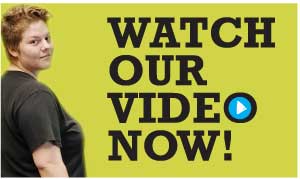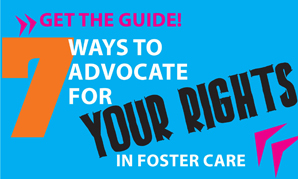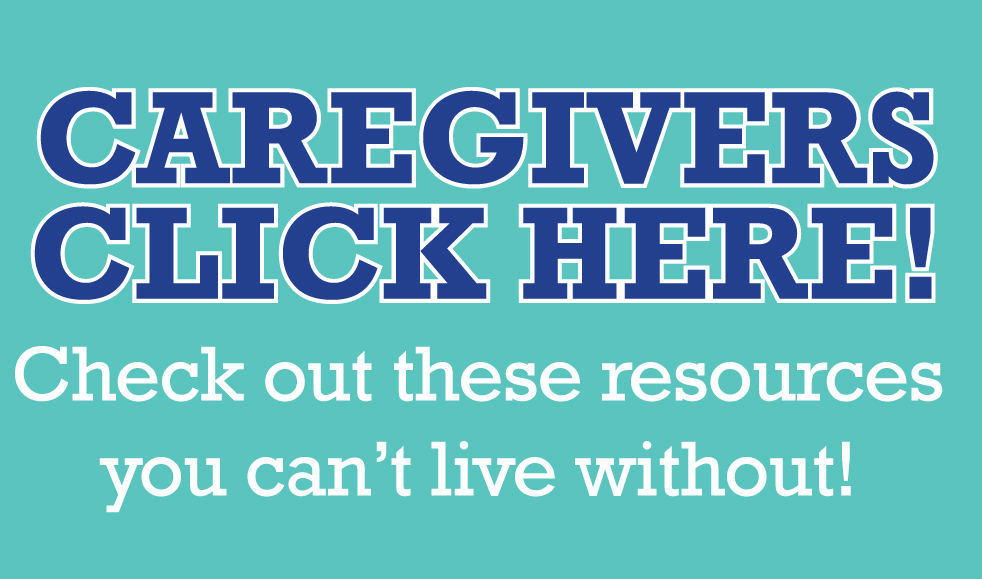Aging Out of Care: The Beauty
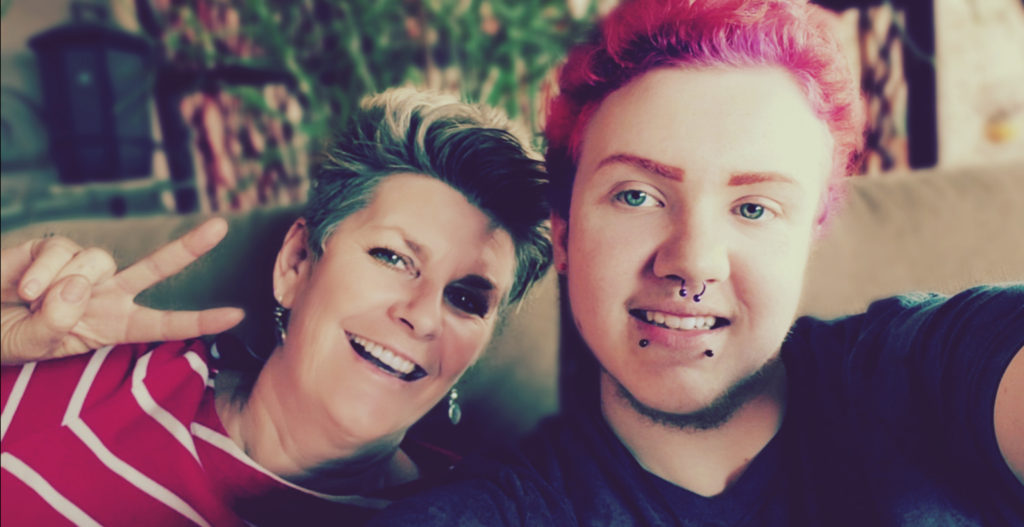
I entered foster care at the age of 15. Like most youth who enter care as a teenager, I bounced around to many placements. As a trans-youth, it was especially hard for me to build connections and find a placement where I would be accepted. DCS struggled to continue to find me new placements. It got so bad that I had to spend my 17th birthday sleeping in an office building because they couldn’t find a placement for me. Fortunately, around this time I entered the THRIVE program and was paired with my mentor, Lori, who provided me with much-needed support to help me as I transitioned out of care.
THRIVE is a mentorship program offered through Arizona’s Children Association. It is designed to provide support to youth ages 16 to 21 who have or will be transitioning out of foster care. THRIVE works with young adults to match them with a mentor based off on their interests.
Lori was not my first mentor in this program. Before her, I was paired with a man who ended up being removed from the THRIVE program because he was not helping the youth who he mentored. When I was told they had a new mentor for me, I was very apprehensive. Like many teens in care, I had trouble trusting that someone was there for me. THRIVE thankfully has a trial period to make it easy for youth to decide that a mentor is or is not a good fit, so I took a leap of faith and met Lori, who has since changed my life.
Lori and I were not the perfect pair when we first met. I thought Lori was loud and obnoxious, and she didn’t understand what it meant to be trans. We disagreed on a lot of things, but we both stuck it out and got through the adjustment period, and she since has become a significant support in my life.
I disrupted from a placement at 17, just a couple months before my 18th birthday. Lori took legal custody over me to make sure I could get back on my feet and has continued to be there for me ever since then. She helps me when I need guidance on things like housing or education, and even if we disagree, I know I always have someone I can reach out to and that Lori will set any disputes aside to be there for me. We celebrate holidays together, Lori and her partner take me out for my birthdays, something I never celebrated while in care, and they treat me like family. Young adults in care may have a lot of support from DCS workers, and other program staff, but we all want that personal relationship that a mentor provides. I am will always be grateful for having Lori in my life to provide just that.
This blog was written by Sora, Young Adult Leadership Board Member for FAAZ. You can read more about Sora here.
Aging Out of Care: The Challenges
As most youth approach their 18th birthday, they are excited about new independence. As an “adult”, they may feel ready to make their own decisions, but they also know they can still rely on their family for their support. For youth in foster care, turning 18 is most often overwhelming. The services and guidance they have relied on, can easily come to an end. Without legal permanency, these young adults find themselves faced with the possibility of not having the people or supports that can help guide them as they transition to becoming an adult in this complicated world. Having someone to provide guidance, support, and practice with decision making can certainly help make this transition easier.
For me, I was in and out of foster care my entire life. I experienced every placement type imaginable, but I never found a family or place to call home. Instead, I became one of the 900 or so young adults in Arizona who age out of foster care every year. At age 18, I was suddenly responsible for myself with no one else really accountable to ME to help me safely find my way. I had to learn how to handle things the right way on my own.
DCS had “prepared” me for this transition in only a few days leading up to my birthday. Everything was a blur as I struggled to learn and obtain the needed knowledge and skills that were suddenly my responsibility. I wanted to slow things down, but we had to stick to the schedule based on a judge’s ruling, not on my needs. On paper, I had multiple people whose job it was to support me, but at the end of the day, I had no one that I had a real personal connection with. Suddenly I was 18 and on my own.
Without someone to guide me through life, I struggled to obtain my legal documents, navigate new insurance coverage, and enroll in supportive programs. I eventually found work, but without interview practice or guidance on my resume, it was far from easy. These were just some of the skills I had been expected to learn in just a few days. I was doing my best to survive, but I was also still a teenager and still learning, making mistakes, and taking risks, but I had to guide myself through these life decisions, and unfortunately, this didn’t always work out for me.
While this transition comes with challenges for everyone, having someone there to support and guide me could have made a big difference. At age 18, I was focused on being independent and having enough money to support myself, so I worked two jobs while going to school. I wish someone had worked with me on my plans for the future. They could have taught me the importance of an education and told me to prioritize school while I still received some assistance through various programs. For me, the hardest part of transitioning out of care is changing your mindset to be an adult and learning to be your own support system and your own motivation. Someone could have impacted my life by continuing to be my support system, motivating and encouraging me, during this time.
If you’re looking for someone to provide support in your life, check out our page on how to find a mentor.
—FAAZ Board Member: Rayanna
The Importance of Sibling Bonds
Children in the foster care system often feel isolated and have a loss of identity. They may feel scared, angry, guilty, or confused. We often turn to our siblings, who have a shared experience, to work through these feelings. It’s critical the system and the community do everything possible to ensure siblings are placed together if removed from their home.
After entering th e foster care system, my eight siblings and I leaned on each a lot for support. The judge handling our case pushed for permanency for all of us, with the goal of getting us out of group homes and into a foster family. At first, the foster family was only interested in my older sisters but soon changed their mind when they were told about all of us. They took in the oldest girls but had to wait until my younger siblings were old enough to be in accordance with the families licensing agreement. While I eventually ended up being separated from some of my siblings while in care, I was grateful that at least at one point we were all together.
e foster care system, my eight siblings and I leaned on each a lot for support. The judge handling our case pushed for permanency for all of us, with the goal of getting us out of group homes and into a foster family. At first, the foster family was only interested in my older sisters but soon changed their mind when they were told about all of us. They took in the oldest girls but had to wait until my younger siblings were old enough to be in accordance with the families licensing agreement. While I eventually ended up being separated from some of my siblings while in care, I was grateful that at least at one point we were all together.
While in foster care, I also had a younger brother who was eventually adopted. While this was very hard for me at first, but I eventually, I found comfort knowing he would be happier and healthier with loving parents.
It is important for foster families to take in sibling groups as a priority. If that is not possible visitation amongst siblings should be guaranteed and supported by all placement types. When siblings must be separated, placement proximity should be considered. There should be as little distance as possible between homes to ensure ease of visitation. Foster parents should always work with other placements to develop a visitation schedule for siblings. This may involve speaking with caseworkers and advocating for the youth.
It is also important to be empathetic to the young people in your care. While you may not truly understand the situation, the youth is going through, understanding they are processing a lot of emotions and need to feel welcome and part of the family. The loss of parents and siblings can make youth feel very isolated, especially if the foster family has biological children. I recommend taking simple actions like acknowledging when the children in your care have done something positive and showing appreciation for help around the house. Simple acts of kindness like taking us to a movie or having a board game night can go a long way! We just want to feel like a part of the family as much as possible.
-Ashley, FAAZ YALB member
Supporting the Transition to Adulthood
As most children approach age 18, they are excited about new independence and freedoms. For youth in foster care, their 18th birthday is often a time when the services they relied on the most to survive, come to an end. For many, they lose their support system and find themselves on their own without any connections. With the correct guidance, resources, and connections, this time could be easier for youth in foster care. As a foster parent, you can help ease this transition.
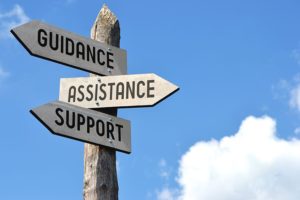
I entered foster care at age 15. Like most older youth, I was first placed in a group home. Fortunately, I was moved to a foster family took after a few months and I stayed with them until was ready to transition. The group home was a difficult place for me to succeed. Due to limited staffing and the desires of the other girls, I often didn’t have time to work on my homework. I also didn’t have access to a computer which made completing many of my assignments quite challenging. This changed when I was placed with a foster family, and later gain admittance to Arizona State University. I was still 17 at the time, and my DCS caseworker was worried about me living in the dorms on my own. With help from my foster parents, I was able to get a judge to sign off on me going straight to ASU and living independently. I also decided to do extended voluntary care and joined the DCS’s Independent Living Program. where I found even more support and resources.
My story is not the norm. Most youth in foster care will not go to college. Many will end up young parents, and many others will end up homeless. I was fortunate enough to have the determination and guidance to succeed. Foster families can help provide this same guidance to the youth they care for.
The first step foster families can take is to care for older youth. Older youth are more likely to be placed in a group care setting vs. family setting. As my story demonstrates, this can be a key factor in a youth succeeding. For me, the group home interfered with my ability to study. Group home restrictions can make it difficult for youth to find jobs and succeed in other areas. Youth may also not receive the individualized guidance they would receive in a family setting.
Foster families should also be informed about the services and resources offered to young adults who have experienced care. The Independent Living Program is one example. Other resources include YATI, tuition waivers, education and training vouchers (ETV), financial literacy training and support through Opportunity Passport™, and more.
Lastly, foster families should recognize, that like a traditional family, the needs of a child do not end at 18. Foster families can continue to stay in contact and offer guidance to youth who have been in their care. My foster family keeps in touch and has invited me to come back for the holidays. While it can still be scary starting out on your own at 18, these simple gestures can help all the difference.
-Nikki, FAAZ YALB member
- 1
- 2
- 3
- …
- 14
- Next Page »
